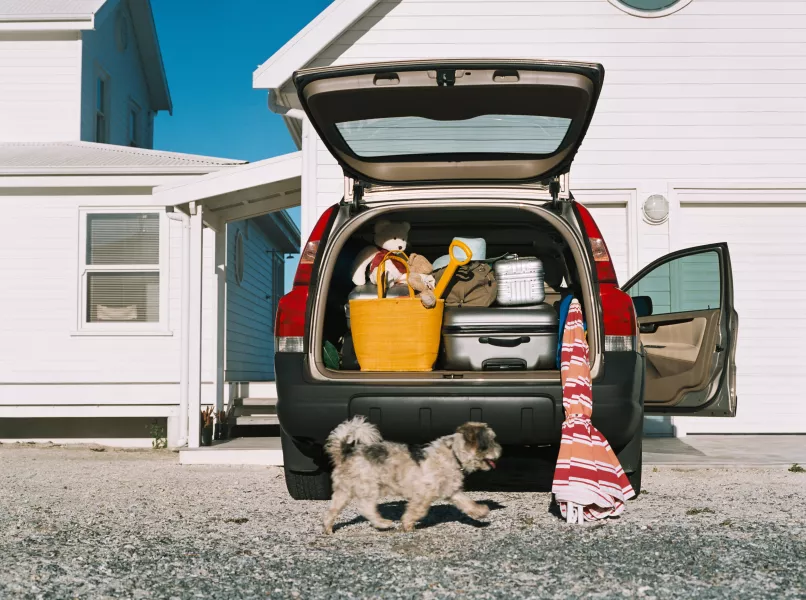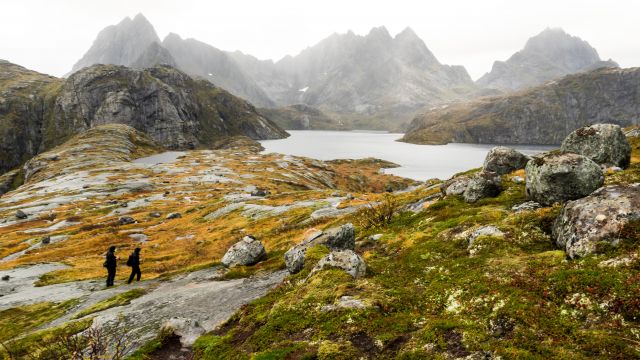Not only has the pandemic changed the logistics of how we travel, but for many of us, it’s also seen a shift in our priorities and approach to taking trips.
Booking.com has looked into the future of travel, talking to over 20,000 travellers from 28 countries. These key trends emerged, giving a potential snapshot into what travel will look like going forward…
1. Working (away) from home
The mainstream working culture has changed, with many more of us now working remotely. While this has its benefits (like being able to receive post during the day and doing your laundry while working), there is also the potential for it to enhance our holidays.
Booking.com predicts people will start taking longer trips, adding an extra week or two to their holidays to work remotely. If you’re getting bored of your kitchen, it’s a good way to kickstart your productivity by working in a new environment, plus you can continue to explore the area once you clock off. Meaning travellers are likely to look for places with speedy WiFi and a suitable place to work when booking their next holiday.
2. Flexibility
The pandemic has made travelling changeable and uncertain, so people are understandably searching for more flexibility in their bookings. In fact, 74 per cent of people surveyed want travel booking platforms to be more transparent about cancellation policies, refunds and insurance options, with 46 per cent thinking refundable accommodation is a must-have, and 36 per cent wanting the flexibility to change dates without being charged.
3. Travelling closer to home

The way we approach travel has shifted, with restrictions meaning the best option is often to stay within your own country. This mentality is likely to endure for some time, with 47 per cent of people planning to travel within their own country in the next seven to 12 months, and 38 per cent wanting to do so in the longer term as well.
It’s all about becoming a ‘familiarist’ rather than a tourist, and getting to know the country you live in a bit better. In fact, half of the people surveyed intend to travel somewhere they’ve already been previously.
4. Safety first
Unsurprisingly, safety and cleanliness will rule travel like never before. The vast majority of travellers expect tourist attractions to adapt for social distancing, and 70 per cent will only book accommodation if its hygiene policies are clear.
In the short-term at least, more travellers are avoiding public transport to get about, so will likely rent or drive their own cars when taking a trip.
5. Going back to basics
A lot of the major trends of the year – whether it’s baking bread or gardening – are about the simple life, and this mentality has spread to travel as well.
It seems people are keener than ever to get out in nature, doing activities like hiking, and spending quality time with family in locations off the beaten track.
After such a stressful year, it’s also no surprise travellers are keen for relaxing experiences rather than doing it all. Over half said relaxing trips were their priority, with 40 per cent wanting a beach holiday and only 29 per cent preferring a city trip.
6. Sustainability
The pandemic has given us an opportunity to hit pause and think about what’s really important in life. As a result, over half of global travellers are looking to be more sustainable in their trips in the future, thinking about their impact on the environment and local communities.
It is likely travel companies will need to step up and be more clear about how they operate, with two-thirds of travellers wanting their travel choices to support a destination’s recovery efforts, and 55 per cent wanting to see how their money is being used to support the local community.







